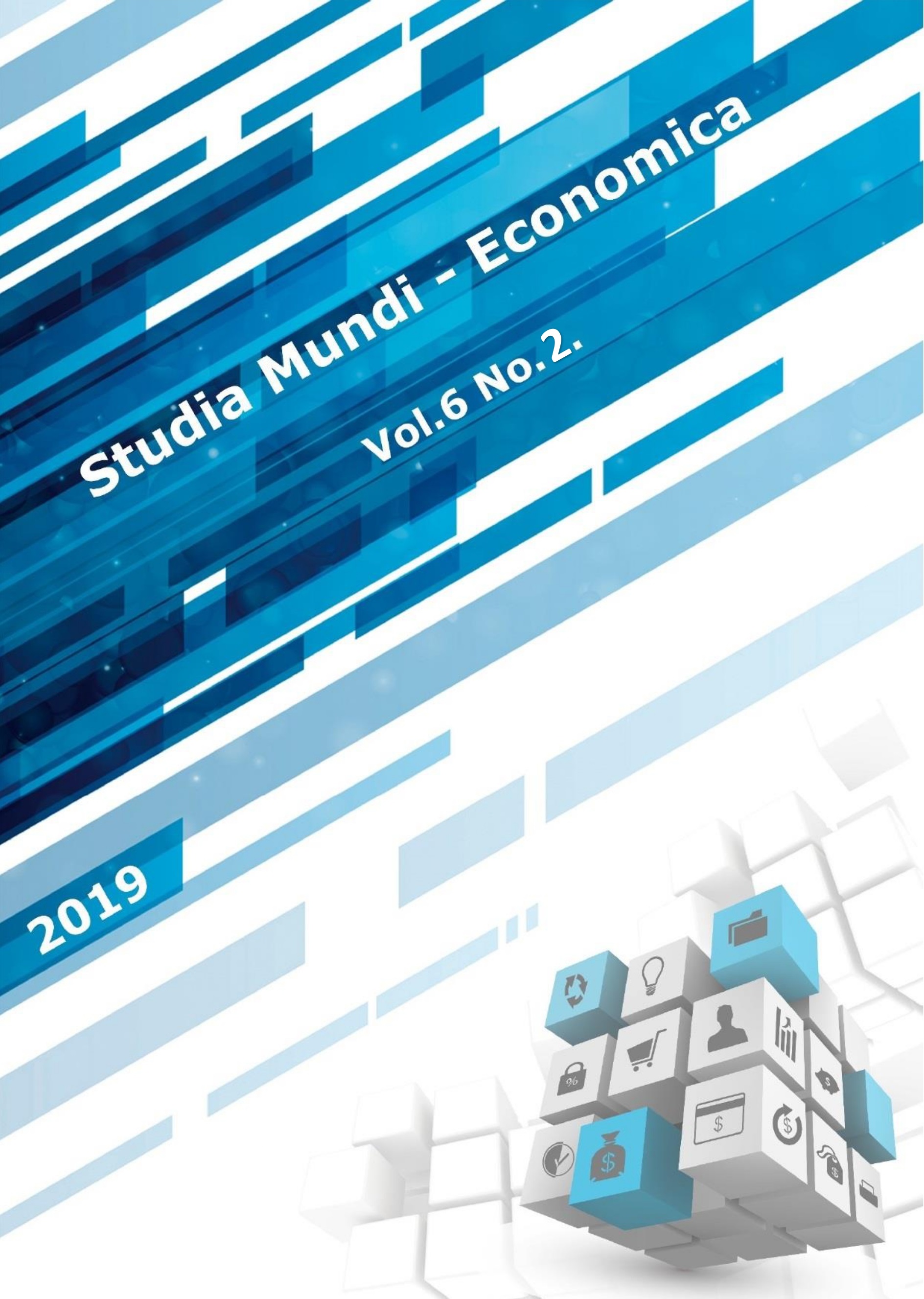Determinants of deprivation in Turkey, a logistic regression analysis
DOI:
https://doi.org/10.18531/Studia.Mundi.2019.06.02.102-112Kulcsszavak:
Poverty, Deprivation, Logit model, Determinants of poverty, TurkeyAbsztrakt
The main goal of this paper is to analyse factors which increase the probability of becoming poor, as well as to estimate which characteristics raises the risk of becoming poor. We use a logit model, which is a flexible way to seek determinants of a phenomena. None of the poverty literature denies the role of education and employment status in becoming poor. However, we test the contribution of other explanatory variables to look at poverty from different approaches. Deprivation index will be used as measure of poverty. We use 2016 wave of SILC data provided by Turkish Statistical Institution.
Hivatkozások
Acar, A. (2014): The Dynamics of Multidimensional Poverty in Turkey. Bahcesehir University Center for Economic and Social Research
Aranz J. M. and Canto O. (2011). Measuring the Effect of Spell Recurrence on Poverty Dynamics-evidence from Spain, Journal of Economic Inequality, Vol. 9, pp .1-27
Bruder E. (2014): Who are the poor in Europe? An alternative to measuring poverty. Területi Statisztika. Vol. 54 No. 2, pp. 152 – 171
Bruder Emese (2013): Mit mutat a jövedelmi szegénység és miért? Paper: CD-ROM , 22 p. In: Székely, Csaba (szerk.) Felelős társadalom, fenntartható gazdaság: Nemzetközi tudományos konferencia a Magyar Tudomány Ünnepe alkalmából: Tanulmánykötet [Social responsibility, sustainable economy: international scientific conference on the occasion of the Hungarian Science Festival] Sopron, Magyarország : Nyugat-magyarországi Egyetem Kiadó, p. 1157
Bruder Emese, Obádovics Csilla, Síle, O'Dorchai, Daniele, Meulders (2011): Methodological and conceptual difficultios of analysing the working poor population in Europe In: Balogh, László (szerk.) Sustainable economics, community strategies : 3rd International Conference of Economic Sciences, Kaposvár, Magyarország : Kaposvári Egyetem, pp. 25-33. , 9 p
Çağlayan, E., & Dayıoğlu, T. (2011): Comparing the parametric and semiparametric logit models: Household poverty in Turkey. International Journal of Economics and Finance, 3(5), 197-207.
Coromaldi, M. and Zoli, M. (2011): Deriving Multidimensional Poverty Indicators: Methodological Issues and Empirical Analysis for Italy, Social Indicators Research, Vol.104, No.1. pp: 1-18
Dansuk Ercan (1997): Türkiye de Yoksulluğun Ölçülmesi ve Sosyoekonomik Yapılarla Ölçülmesi’’, Sosyal Sektörler ve Koordinasyon Genel Müdürlüğü Ücretler ve Gelirler Dairesi Başkanlığı, Devlet Planlama Teşkilatı
Dimitry S. (2003): Below the Poverty Line: Duration of Poverty in Russia, Economics Education and Research Consortium Working Paper Series, No.03/04
Dumanlı Recep (2002): Türkiye'de Yoksulluk Sınırı ve Boyutları”in Yoksullukla Mücadele Stratejileri, Ed. Aktan C.C., Hak-İş Konfederasyonu Yayınları, Ankara
Finnie R., Sweetman A. (2003): Poverty Dynamics: Empirical Evidence for Canada, Canadian Journal of Economics, Vol.36, No.2, pp.291-325.
Fourage D. and Layte R. (2003): Duration of Poverty Spells of Europe, EPAG Working Papers Number 47
Janjua, P. Z., & Kamal, U. A. (2011): The role of education and income in poverty alleviation: A cross-country analysis. The Lahore Journal of Economics, 16(1), 143- 172
Kagitcibasi, C. & Ataca, B. (2015): Value of Children, Family Change, and Implications for the Care of the Elderly. Cross-Cultural Research. Volume: 49 issue: 4, page(s): 374-392
Kızılgöl, Ö. A., & Demir, Ç. (2010): Türkiye’de yoksulluğun boyutuna ilişkin ekonometrik analizler (Econometric analyses of poverty dimension in Turkey). Business and Economics Research Journal, 1(1), 21-32
McCulloch, N. and Baulch, B. (2000): Simulating the Impact of Policy Upon Chronic and Transitory in Rural Pakistan, Journal of Development Studies, Vol.36, No.6, pp.100-130
Oshio T, Kobayashi M., (2011): Area Level Income and Individual Happiness: Evidence from Japan, Journal of Happiness Studies, Vol.12, No.4, pp.633-649
Smith K., (2003): Individual Welfare in the Soviet Union, Social Indicators Research, Vol. 64, No. 1 pp.75-105
Turkstat, (2016): Income and Living Condition Survey 2016, accessed at http://www.turkstat.gov.tr/PreTablo.do%3Falt_id%3D1011
Unal H, Bruder E, (2017): Causes of deprivation in regions with different urbanisation level, Vadyba Journal of Management, vol 31(2) pp:31-36
Letöltések
Megjelent
Folyóirat szám
Rovat
License
Copyright (c) 2019 Brúder Emese, Obadovics Csilla, Ünal Hakan

This work is licensed under a Creative Commons Attribution-NonCommercial-NoDerivatives 4.0 International License.
A folyóirat Open Access (Gold). Cikkeire a Creative Commons 4.0 standard licenc alábbi típusa vonatkozik: CC-BY-NC-ND-4.0. Ennek értelmében a mű szabadon másolható, terjeszthető, bemutatható és előadható, azonban nem használható fel kereskedelmi célokra (NC), továbbá nem módosítható és nem készíthető belőle átdolgozás, származékos mű (ND). A licenc alapján a szerző vagy a jogosult által meghatározott módon fel kell tüntetni a szerző nevét és a szerzői mű címét (BY).






